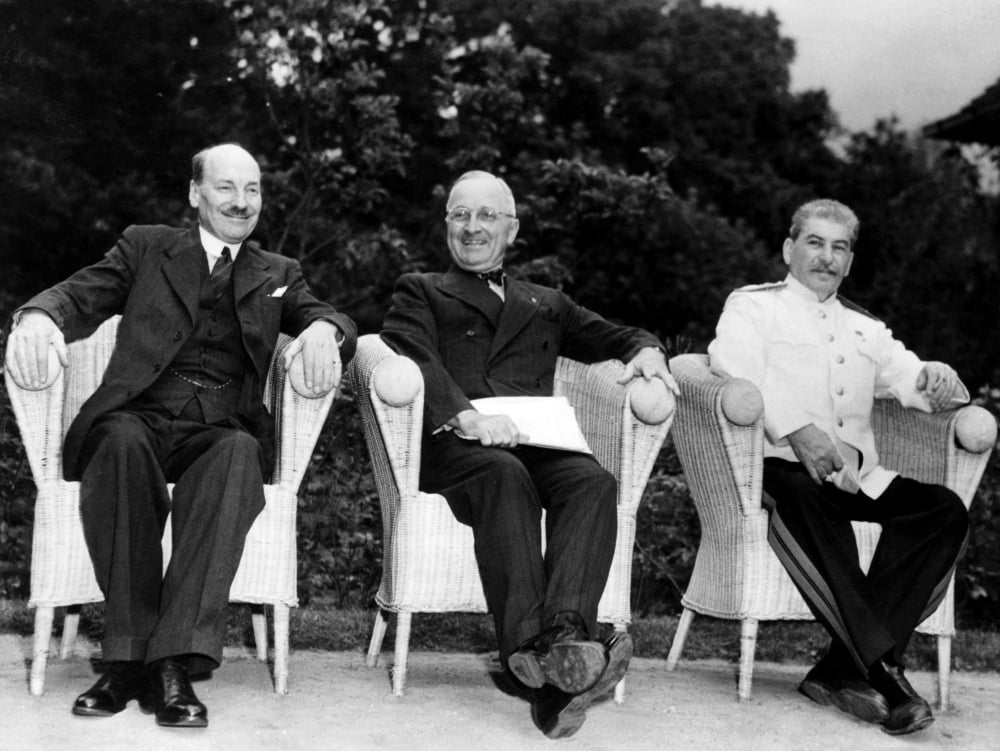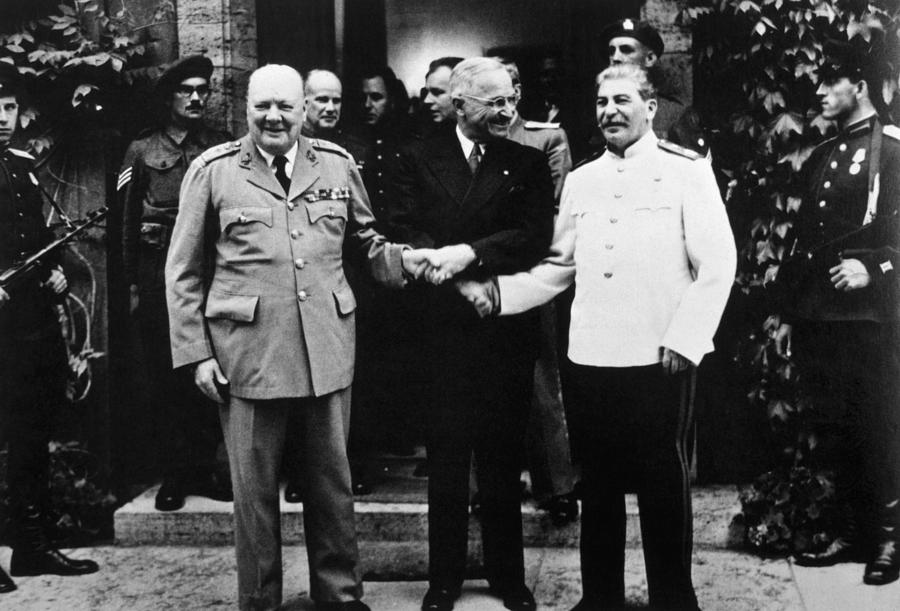

With time on his hands, the President decided to tour Berlin. Truman was told that Stalin would be late reaching Potsdam. Of course, he had been informed of what an inadequate chief of state he had to deal with.

I think he was surprised and pleased when he met me. He wrote in his diary that when the Prime Minister called on him at his villa on Monday morning, July 16, Churchill “gave me a lot of hooey about how great my country is and how he loved Roosevelt and how he intended to love me.” As Truman recalled in 1954, “I liked him from the start. Truman had never met Churchill before Potsdam. The following excerpt from Beschloss’ book portrays an increasingly self-confident Truman sparring with Stalin and Churchill at Potsdam, site of the 17-day conference held in July and August to refine the Yalta plans. administration today as it contemplates an Iraq after Saddam Hussein. Beschloss, the author of six other books, believes that Roosevelt and Truman had to wrestle with a central question: “Did they presume that Germans, humiliated by their defeat, would soon turn to another Adolf Hitler-or had they fought World War II with the belief that German history could be diverted in the direction of a lasting democracy?” A similar question confronts the U.S. and Soviet documents to describe the diplomatic maneuvers. In The Conquerors: Roosevelt, Truman and the Destruction of Hitler’s Germany 1941-1945 (just published by Simon & Schuster), historian Michael Beschloss draws on recently opened U.S. Truman, who had little experience in foreign affairs, was sworn in as President. On April 12, less than three weeks before Hitler committed suicide and Germany surrendered, FDR died in Warm Springs, Georgia. FDR, whose resolute authority was crucial to forging the accords, would not live to see the war’s end. During this ‘Cold War’, there were repeated discussions about how the Potsdam Agreement was to be interpreted.In early February of 1945, when the defeat of Germany was finally a foregone conclusion, President Franklin Delano Roosevelt, Prime Minister Winston Churchill and Premier Joseph Stalin met in the Crimean city of Yalta, on the Black Sea, to consider the future of Europe and set the stage for a later meeting at Germany’s Potsdam, whose name would become synonymous with statecraft of the highest order.Īt Yalta, the leaders of the “Big Three” confirmed they would accept nothing less than Germany’s unconditional surrender demand that Germany pay reparations to the victors and divide the defeated nation into four zones, occupied, respectively, by the United States, Britain, France and the Soviet Union. At the Potsdam Conference it became clear that the end of the war also meant the end of a common policy of the wartime Allies and the beginning of new conflicts. On 7 August 1945 the French government acceded to the Potsdam Agreement, albeit with certain reservations with regard to a number of points. Although France was informed of the Potsdam decisions, it took no part in the decision-making process. Since the Soviet Union was not satisfied with that, it was agreed that additional reparations would be provided to it from the Western occupation zones. It was decided that each occupying power was to meet its reparations claims from its own zone. Furthermore it was stipulated to suspend further expulsions of German populations from Poland, Czechoslovakia and Hungary and to insure an orderly transfer to Germany. But the ultimate determination of the German-Polish border was to be delayed until a later peace conference. The German-Polish border was to be shifted westwards to the Oder-Neiße line. The ‘Big Three’ came to an agreement about the political principles for the government of Germany during the occupation: decentralization, demilitarization, denazification and democratization. With the end of the combat operations in Europe, the three government leaders of the victorious powers, Harry Truman, Winston Churchill (replaced by Clement Attlee) and Joseph Stalin, met in person to discuss the new order in Europe and Germany. In the summer of 1945, world history was written at Cecilienhof Palace in Potsdam, just southwest of Berlin.


 0 kommentar(er)
0 kommentar(er)
